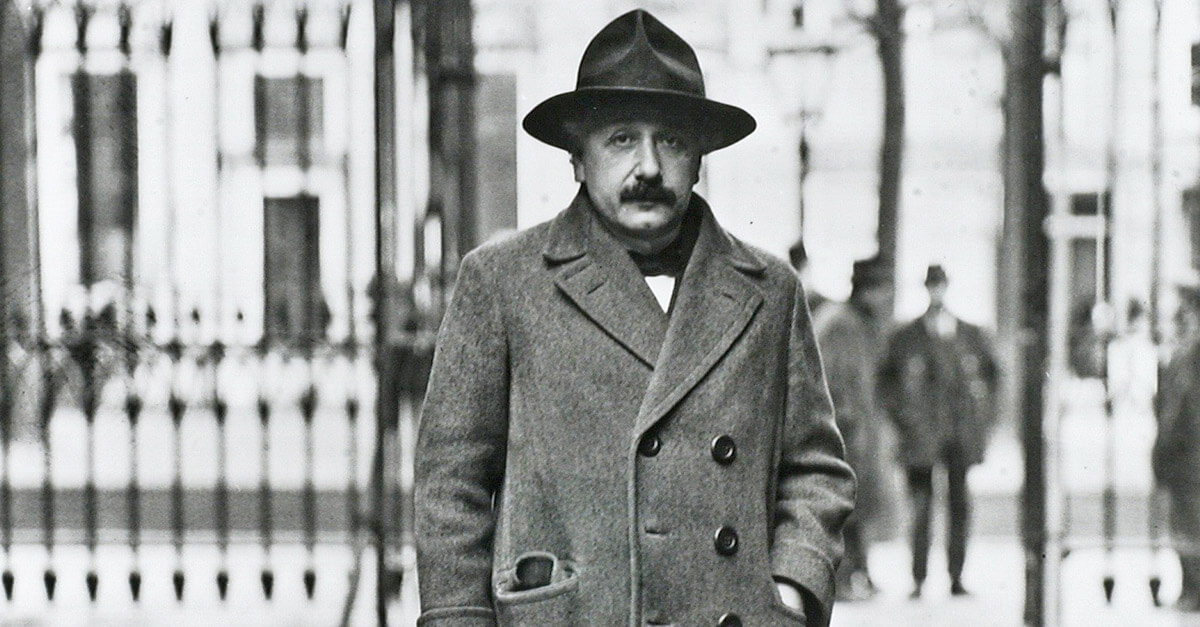100 years ago, Albert Einstein fled Berlin due to antisemitism
The Nobel Prize winner left the city after a rumored assassination attempt

Graphic by Angelie Zaslavsky
Max Planck knocked on the door of his friend’s apartment. Albert Einstein was not home.
It was Berlin, Nov. 9, 1923, and antisemitism was on the rise, just as it is now, 100 years later. High food prices led to riots, with many blaming the Jews for inflation. A year earlier, Walther Rathenau, the German-Jewish foreign minister, also a friend of Einstein’s, was murdered in the streets.
On this particular day, Einstein unexpectedly fled Berlin because of a rumored assassination attempt on his own life. He sought refuge in Leiden, 400 miles to the east in the Netherlands. But Einstein had neglected to inform Planck that he needed to cancel the previously arranged invitation for the friends to meet.
On Nov. 10, 1923, Plank wrote to Einstein (in German, but translated here in English by the Einstein Papers Project at CalTech): Plank said that when he arrived, he was surprised to only find Einstein’s wife. “She told me about your departure and the despicable events that caused it. I am quite beside myself with fury and rage at those infamous shady characters who dared and managed to separate you from your home, from your working quarters; and I will set everything in motion in order to bring these sordid affairs to light and bring the guilty to a most rigorous account.”
Two days later, Einstein, in Leiden, jotted down the following aphorism: “Children don’t make use of their parents’ life experiences; nations couldn’t care less about history. Bad experiences must always be made anew.”
Antisemitism nearly derailed Einstein’s career
In the ensuing years, life got more difficult for Einstein, perhaps the most famous Jew in Germany.
His work was often criticized. Before the theory of relativity was proven, 100 scientists got together and published a book discrediting Einstein. At an anti-relativity event at the Berlin Philharmonic Hall, pamphlets mocking Einstein were handed out.
Later, as the Nazis rose to power, these critiques were laced with antisemitism. Non-Jewish Austrian and German scientists claimed that Einstein had stolen the theory of relativity from them.
He was targeted as an enemy of the state, and a $5,000 bounty was rumored to have been placed on his head. “I didn’t know I was worth so much,” Einstein joked.
The physicist was barred from his teaching position at the Prussian Academy of Sciences in Berlin. When he finally fled Germany for good in December 1932, he told his wife, Elsa, “Take a very good look at it. You will never see it again.” It was a premonition. Four months later, the Nazis searched his summer cottage in Caputh, which was later taken over by the Hitler Youth. (Hebrew University, home to the Albert Einstein Archives, now owns the property.)
Einstein was granted residency in the United States in 1933, thanks to the EB-1 visa, a government program that gives priority to immigrants who have “extraordinary talent” or are “outstanding professors or researchers.” It has since become known as the “Einstein visa.” Melania Trump, a Slovenian model before becoming the First Lady, came to the United States on an Einstein visa.
Once safe in the U.S., Einstein secured visas for other German Jews. Toward the later 1930s, in the years preceding the Holocaust when the U.S. limited the number of immigrants it would let in, Einstein used his influence and his own money to relocate German Jews to wherever would accept them — including Alaska and Mexico. (Despite his fame, Einstein was not a wealthy man. When he divorced his first wife, Mileva, in 1919, she made him promise that if he were to win the Nobel Prize, she would get the prize money. He won two years later, and gave her the cash.)
Einstein, who described himself as a “militant pacifist,” saw firsthand what could happen when nativism and nationalism were left unchecked. In 1924, he joined a committee at the League of Nations, an early precursor to the United Nations, and devoted the rest of his life to promoting world peace.
One week before his death in April 1955, Einstein launched a project with Bertrand Russell, a friend and philosopher, to reverse the trend they were seeing of nations racing toward nuclear war. Together they authored what’s become known as the Russell-Einstein Manifesto. In it, they said they were writing not as “members of this or that nation, continent or creed, but as human beings.”
After Einstein’s death, hoping to carry on his final wish, Russell and Joseph Rotblat, a Polish physicist, created the Pugwash Conferences on Science and World Affairs, where scholars and public figures would gather regularly to work on ways to reduce the dangers of armed conflict. In 1995, 40 years after the publication of the Russell-Einstein Manifesto, the organizers of the Pugwash Conferences won the Nobel Peace Prize.





















